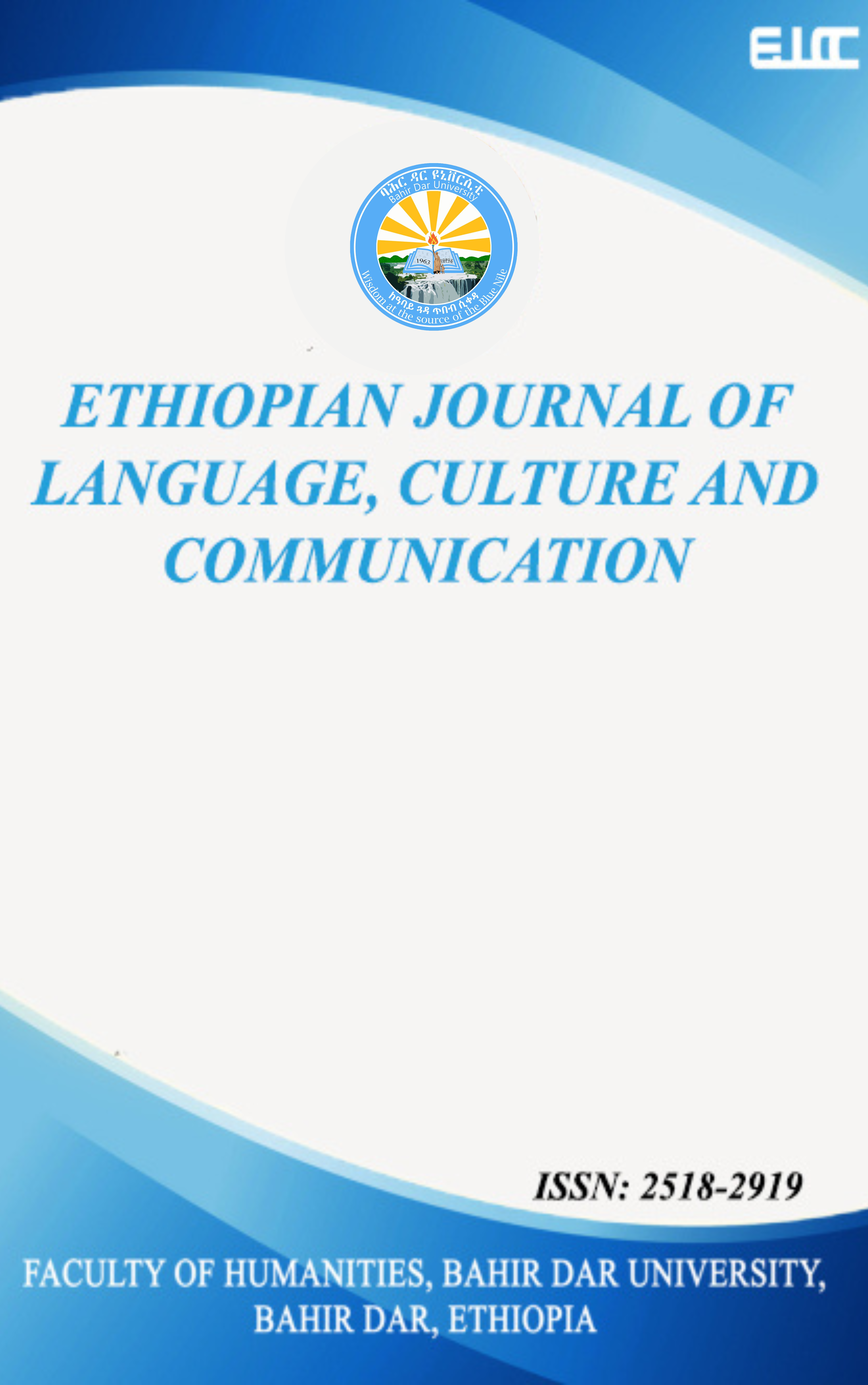Amharic Terminologies Delopement Efforts in Primary Education curriculum materials
Abstract
The study examined term development approach, and term formation methods of Primary Education Amharic Terminologies (PEATs). It has been conducted using descriptive design of Descretive research. Qualitative data were collected through a questionnaire from textbook writers of grade five and six Civics & Ethical Education, Integrated Science, Mathematics, and Social Studies subjects. Interview data were gathered from curriculum and concerned government institutions experts of Amhara region and federal government. Besides, textbooks of the aforementioned subjects were reviewed to excerpt terms. Then, the qualitative data were analyzed using thematic techniques, and term formation methods; whereas the quantified qualitative data were computed using percentile. The study revealed that textbook writers and curriculum experts were traditionally tend to use primarily puristic approach in order to coin transparent terms. In relation to the efforts made to develop Amharic terms the study indicated that different term formation methods (such as: derivation, compounding, blending, abbreviating, terminologization, semantic transfer within a special language, trans-disciplinary borrowing, direct loan, and loan translation) can be used in developing Amharic terms. Among these term formation methods the dominant ones is loan translation. Finally, the study suggested that policy based terminology development and cooperation of stakeholder (Linguists, curriculum experts, textbook writers and subject teachers) inorder to have sustainable term cultivation endeavours as well as quality terms.
Copyright (c) 2024 Author(s)

This work is licensed under a Creative Commons Attribution-NonCommercial 4.0 International License.
Authors who publish with this journal agree to the following terms:
- Authors retain copyright and grant the journal right of first publication with the work simultaneously licensed under a Creative Commons Attribution License that allows others to share the work with an acknowledgement of the work's authorship and initial publication in this journal.
- Authors are able to enter into separate, additional contractual arrangements for the non-exclusive distribution of the journal's published version of the work (e.g., post it to an institutional repository or publish it in a book), with an acknowledgement of its initial publication in this journal.
- Authors are permitted and encouraged to post their work online (e.g., in institutional repositories or on their website) prior to and during the submission process, as it can lead to productive exchanges, as well as earlier and greater citation of published work (See The Effect of Open Access).


